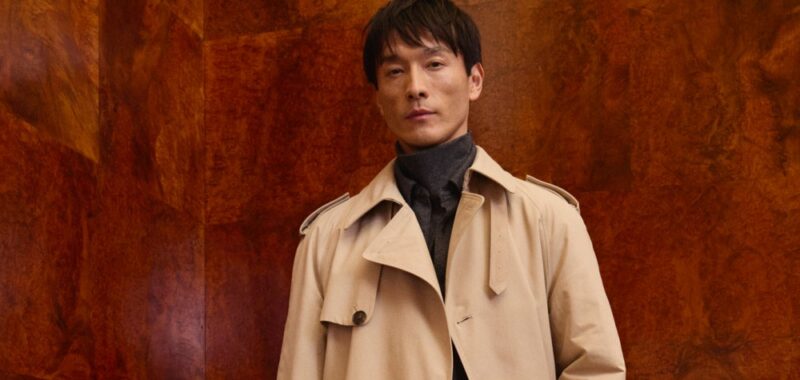Tod’s centered its men’s fall collection on the Pashmy project, selecting soft, silky, and lightweight leathers reminiscent of the delicacy of pashmina.
First launched last season, creative director Matteo Tamburini said he wanted to “insist on the Pashmy, defining our approach and shaping all our products, from apparel to footwear and bags.”
He divided the project in two, using either suede or a version of super-light nappa leather, seen in Tod’s striking bombers and field and shirt jackets, but also in the selection of footwear and bags. The palette in natural earth tones, from sand and burnt shades to tobacco, contributed to emphasizing the hides.
“We wanted to work on the materials, stimulating a sensory experience that impacts sight and touch,” said Tamburini.
The collection was again unveiled at Villa Necchi Campiglio, a historic residence in Milan built between 1932 and 1935 and designed by Rationalist architect Piero Portaluppi, a reference and an inspiration for the collection, as was Gio Ponti, Tamburini said, together with German artist Joseph Beuys, whose “Felt Suit” became an example of Wearable Art. This helped spark Tamburini’s aim to create garments and accessories that are “aesthetically pleasing but functional at the same time, which is what Tod’s, and we believe men, want.”
In addition to the brand’s signature gommino mocassins, Tod’s revisited the storied W.G. Winter Gommino as an ankle boot, a desert boot and a loafer.
A standout was also a multi-pocket trekking backpack.
Tod’s Group chairman Diego Della Valle walked around Villa Necchi Campiglio with a beady eye, straightening out the loafers on a pedestal, telling the artisans how to carefully touch the hides, checking out how the bags were displayed.
Always vocal about supporting Italian craftsmanship, the entrepreneur said “this is what the world envies, it’s the backbone of our country. Brands should become aware that people want things well done at the right price and we can’t betray their trust.”

